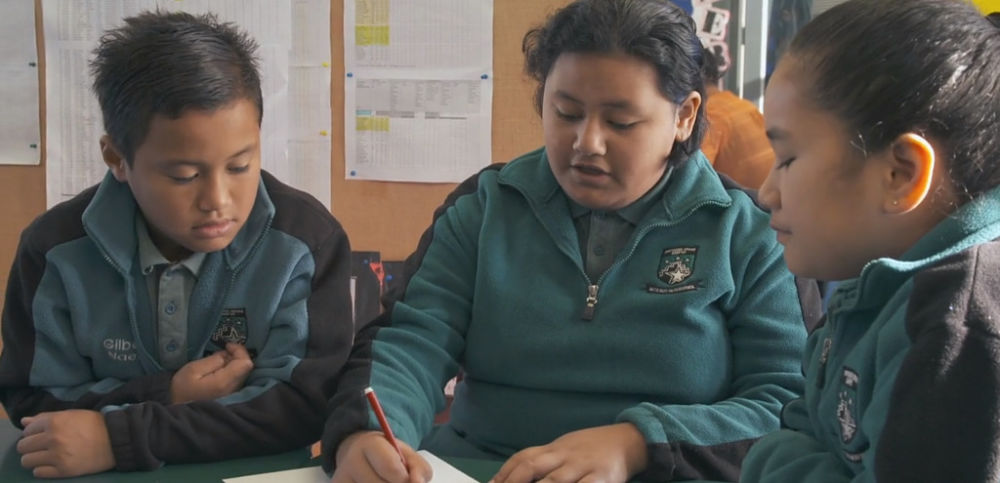
Professor Glenda Anthony, Professor Roberta Hunter, and Dr Jodie Hunter
Developing Mathematical Inquiry Communities / Centre for Research in Mathematics Education
Massey University
Grouping students in maths classrooms based on their ability or prior attainment is a notion that is increasingly being challenged by research (see also here and here). When we have engaged in so-called ‘ability grouping’ practices for so long, why should we think about changing? And what would the change involve? These are big questions that are concerning many teachers at the moment, spurred by a nagging concern that traditional ability grouping may be missing the mark for a large group of students, along with wider conversations about equity issues in our school system.
In New Zealand, teachers’ typically deficit-oriented views of Māori and Pāsifika students, their families, and the communities in which they live, along with the widespread practice of ability grouping, serve as a backdrop for teachers’ views of students’ mathematical capabilities and expectations. However, when challenged to consider providing richer and more challenging opportunities for all children to learn, many Mathematics Support Teachers who were part of our recent research discovered that struggling students were indeed able to achieve better outcomes—both in terms of their maths identity and their achievement levels. Reorganising classroom practice based on heterogenous (mixed-ability) groups was one key element of this transformation.
How could heterogeneous (mixed-ability) groups work in my classroom?
To ensure that all students benefit from heterogeneous (mixed-ability) groupings, based on strength-based and social capabilities, requires big shifts in the way we teach and in our expectations for students’ classroom participation norms. Surface changes where so-called ‘experts’ are expected to teach less capable students within a mixed-ability group do little to promote inclusion and opportunity to learn. Rather, changes need to include:
- Changes in task format (e.g., the use of group-worthy, low entry / high ceiling, challenging problematic tasks)
- An increased focus on mathematical talk in the form of argumentation (“friendly arguing“)
- An explicit focus on (all students) developing and using mathematical practices such as mathematical explanation, justification, modelling, and representation
- Changes in expectations/norms for student engagement (e.g., prioritising the values of respect, reciprocity, collaboration, and risk taking)
- Increased cultural awareness as well as culturally sustaining teacher expectations.
The organisational practice used in Developing Mathematical Inquiry Community (DMIC) classrooms involves half of the class engaging in group workworking with the teacher while the other half of the class do independent activities. Following a problem launch, groups work to collaboratively solve a group-worthy problematic task, and then, facilitated by the teacher, come together to discuss their solutions and the big ideas within the problem. In this format, learning mathematics is a social endeavour, with students helping and learning from each other as part of a community. Our research shows that this approach supports students to develop skills in risk taking, creativity, and collaborative problem solving.
Changing your classroom grouping practices changes your views about maths
Despite teacher awareness of the potential benefits of more flexible grouping practices, making changes can be a daunting prospect for teachers. As well as changes to mathematical tasks and activities, for many teachers a move to social rather than ability grouping involves (and may result in) changes in their relationship with maths and their perception of students’ capabilities. In DMIC classrooms across Aotearoa NZ, where teachers have moved to social, mixed-ability grouping, we have seen dramatic changes in teacher thinking and beliefs:
- Teachers (as well as students) have come to experience learning maths as a collective endeavour rather than an individual activity.
- Teachers have shifted from viewing maths as a fixed body of knowledge that is learnt by following rules to thinking about mathematics as a set of practices (e.g., arguing, modelling, generalising) and ways of interpreting the world (through quantification, mathematical reasoning, geometry and statistics).
- They have shifted from believing that only some people can do mathematics successfully to appreciating the multidimensional capabilities of all their students.
- Teachers have come to see their students as a resource within the classroom.
- And they are very concerned about providing opportunities for all students to talk about and share their mathematical thinking.
Making change is challenging
Making change in one’s practices is difficult, and while one often starts with experimentation within one’s own classroom, there is huge value to be found in collegial, leadership and professional learning expertise. Within DMIC schools, teachers find that collaborative planning of group-worthy tasks supports them to better anticipate students’ likely solutions to the problems, to adapt contexts to fit students’ experiences, and to share and learn about the big ideas in the problem. Mentoring from experienced teachers who have already made the shifts described above also offers powerful support during the change process. Alongside the implementation of collaborative group tasks, teachers find it useful to adapt their traditional warm-up activities to include more opportunities for students to engage in sharing their mathematical thinking. For example, ‘quick tens’ can be replaced with richer activities such as choral counts, quick images, and strings.
We end by revisiting the question, why change? The answer lies in our goal to provide equitable opportunities for each and every student to learn maths in a way that affirms their identity, that provides them with meaningful and enjoyable learning opportunities every day in their classroom, and that enables them as adults to participate and contribute as productive citizens.
Originally published on Ipu Kereru, blog of the NZ Association for Research in Education here
Great Blog. I add this Post to my bookmarks.